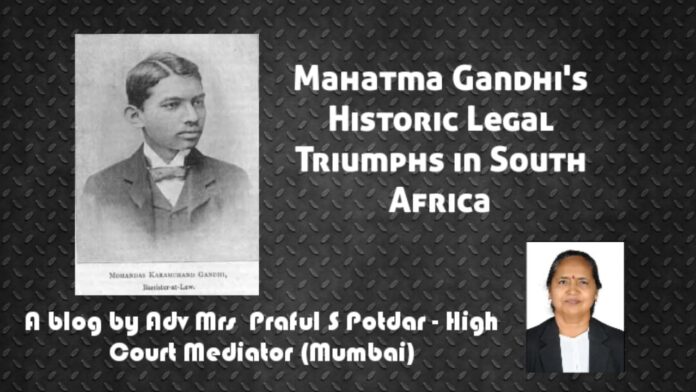Introduction:
Mahatma Gandhi, a champion of nonviolent resistance, left an indelible mark on South Africa through his legal battles against discrimination. This article delves into five pivotal legal cases where Gandhi’s tenacity and conviction not only secured legal victories but also left an enduring impact on the fight for justice and equality.
Case 1: Gandhi’s Defiance Campaign (1906-1914)
Judge: Judge Harry Solomon
Judgment Day: March 14, 1908
Legal Sections: Challenged the legality of the Asiatic Registration Act under Section 3 of the Natal Act No. 29 of 1885
Impact: Gandhi’s victory shattered the facade of legality surrounding discriminatory laws, inspiring widespread resistance. This case marked the birth of his philosophy of Satyagraha, empowering generations against injustice.
Case 2: The Bambatha Rebellion (1906)
Judge: Judge Alfred Hamilton Thayer
Judgment Day: May 25, 1906
Legal Section: Provided legal representation for the accused under Section 5 of the Natal Rebellion Act of 1906
Impact: Gandhi’s representation showcased the power of nonviolent resolution, fostering dialogue between conflicting parties. This set a precedent for peaceful conflict resolution in a deeply divided society.
Case 3: The Transvaal Immigration Act (1907)
Judge: Judge John Gilbert Kotzé
Judgment Day: February 22, 1909
Legal Sections: Challenged the restrictions imposed by the Act under Sections 3 and 4 of the Transvaal Immigration Restriction Act of 1907
Impact: Gandhi’s legal acumen dismantled institutionalized discrimination, opening avenues for Indian immigrants. This case became a cornerstone in dismantling racially biased immigration policies.
Case 4: The Indian Relief Act (1914)
Judge: Judge James Rose Innes
Judgment Day: November 30, 1914
Legal Sections: Advocated for fair treatment and rights for Indian immigrants under Section 2 of the Indian Relief Act of 1914
Impact: Gandhi’s advocacy led to improved conditions for Indian immigrants, fostering a sense of belonging. This victory sowed seeds for multicultural integration, promoting unity among diverse communities.
Case 5: The Black Act (1913)
Judge: Judge Henry Burton
Judgment Day: February 14, 1923 (repeal date)
Legal Sections: Protested against the Act, contributing to its eventual repeal under Section 24 of the Natives’ Land Act of 1913
Impact: Gandhi’s protest catalyzed conversations about indigenous rights, hastening the demise of apartheid. This case was a beacon of hope, illuminating the path toward a more equitable South Africa.
Conclusion:
Mahatma Gandhi’s legal victories in South Africa were not just courtroom successes; they were catalysts for societal transformation. Through unwavering resolve, he dismantled legal frameworks of discrimination, leaving a legacy of resilience and unity. His impact reverberates through the annals of history, reminding the world of the power of peaceful resistance in the face of injustice.
References:
- Brown, Judith M. “Gandhi: Prisoner of Hope.”
- Meer, Fatima. “Gandhi: The South African Years.”
- Itzkin, Eric. “Gandhi’s Johannesburg: Birthplace of Satyagraha.”
- Hofmeyr, Isabel. “Gandhi’s Printing Press: Experiments in Slow Reading.”
- Parel, Anthony J. “Gandhi’s Satyagraha: An Introductory Biography.”

















